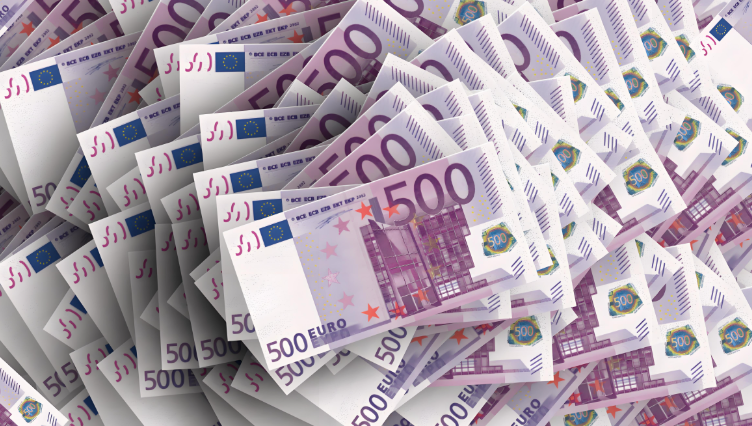EU's €200 Billion Bet on AI
Advertisements
The global landscape of artificial intelligence (AI) is evolving at breakneck speed, as nations and regions vie for supremacy in this frontier of technology that promises to reshape economies and societies. In a strategic maneuver that signals its intention to remain competitive, the European Union (EU) has recently ramped up its investment in AI, aiming to secure its place in this transformative race.
On February 11, during the AI Action Summit held in Paris, European Commission President Ursula von der Leyen unveiled the ambitious "InvestAI" initiative. This plan entails mobilizing an impressive €200 billion (approximately $206 billion) for AI investments over the next few years. In her speech, von der Leyen emphasized the importance of accessibility to computing power for not only larger enterprises but for every company operating within the EU.
“We want to ensure that every company, not just the big ones, has access to the computing power they need,” she stated, stressing the idea that such investments would unleash a wave of individual and private funding that could be compounded by more than tenfold. This public commitment could catalyze a significant shift in the European tech landscape, potentially elevating its status on the global stage.
As part of the InvestAI initiative, €20 billion will be directed specifically towards establishing AI super factories intended to provide the immense computational power necessary to train some of the world’s largest and most complex AI models. The funds will be drawn from established EU financial projects including the Digital Europe Programme, Horizon Europe, and InvestEU, all designed to leverage investments potentially reaching €200 billion in total.
Moreover, the initiative will be supported jointly by the EU and private investors, with von der Leyen revealing that the EU plans to contribute €50 billion (around $51 billion), while the remaining €150 billion (approximately $154 billion) will come from private sector commitments, including suppliers and investors.
The ambitions of the EU to position itself as a leading continent in AI development starkly counter arguments claiming Europe has fallen behind the United States in technology. In response to perceived disadvantages, von der Leyen insists that “the race is far from over,” heralding the potential for a rebirth in European AI capabilities. Some analysts suggest that this robust action is a direct counter to the U.S. government’s recent announcement of a monumental $500 billion "Gateway to the Stars" initiative aimed at bolstering American AI dominance.

Recent developments showcase a glimmer of hope for European AI competition, particularly with French startup Mistral AI garnering attention for its AI assistant application, Le Chat, which recently ascended to the top of France's free app rankings. Mistral AI’s rapid development encapsulates the burgeoning spirit of European innovation, boasting a performance speed capable of generating 1,000 tokens per second—thirteen times faster than popular models like ChatGPT. Le Chat's ability to access real-time internet data and produce high-quality imagery has positioned it as a significant contender against AI giants like DALL·E 3. With the startup's valuation soaring to $6.2 billion within just over a year of its establishment, it epitomizes Europe’s growing prowess in AI.
On the eve of the AI summit, French President Emmanuel Macron announced an investment of €109 billion (approximately $112 billion) aimed at constructing a European counterpart to the U.S. "Gateway to the Stars." Macron underscored the necessity for France and Europe to take a pivotal role in the unfolding AI revolution, with plans to create 35 sites across the country dedicated to laying the groundwork for robust AI infrastructure.
The recent emergence of China's cost-effective AI model, DeepSeek, has also sent shockwaves through the industry, highlighting that substantial investments are not the only pathway to constructing effective AI systems. As such, the aforementioned European initiatives appear even more crucial as the continent strives to maintain competitiveness against innovations emerging from around the globe.
Henna Virkkunen, the EU Commissioner for Technological Sovereignty, summarily expressed a robust commitment to fostering a thriving AI startup community within the EU, noting the common challenges that these enterprises face in terms of accessing the necessary computing resources. “In just one year, we're expecting our supercomputing capabilities to quintuple, but additional investment is still necessary,” she stated, pointing to the ambitions resting on the foundation laid by the EU's investment schemes.
Von der Leyen reiterated the need for Europe to carve out a unique path on the AI development track, focusing on distinctive methodologies that leverage the continent’s technological strengths. This dual focus aims not only to harness cutting-edge technology as a catalyst for AI progress but also to implement AI solutions in complex, real-world applications that can unlock untold potential. Furthermore, the EU's rich repository of industrial manufacturing data is positioned as a vital resource, serving as "nutrients" for training AI models that could propel European enterprises forward.
Additionally, cultivating a diverse talent pool from various countries and industries will be crucial, as such convergence might spark innovative ideas and solutions essential for advancing AI in Europe. The explicit acknowledgment from von der Leyen of the historical context surrounding these initiatives—building upon last December's pledge of €20 billion for the construction of seven AI-optimized supercomputers—illustrates a serious commitment to achieving these ambitious goals. Once operational, these supercomputers will be available to startups, serving as the backbone of their AI model training and allowing for accelerated growth of Europe’s budding AI ecosystem.
Notably, the Commission has plans to announce the addition of five more supercomputers in the near future, signaling a robust strategy aimed at fortifying Europe's position in the international AI competition. This array of initiatives highlights the EU's resolute commitment to investing heavily in AI, aspiring not only to catch up with competitors but to emerge as a leading force in the global AI narrative. As Europe presses forward, it stands on the cusp of a crucial turning point, capable of reshaping its destiny in an era defined by intelligence and innovation.